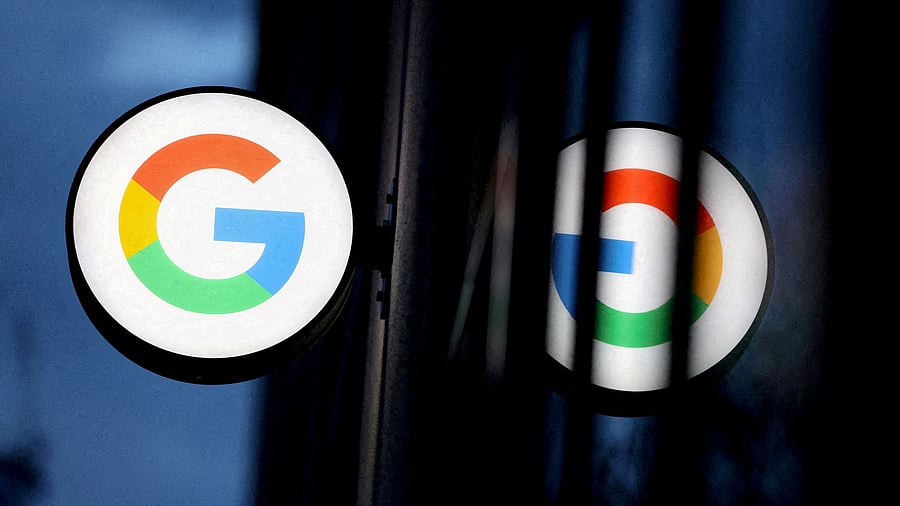
Representative image showing Google logo.
Credit: Reuters Photo
By Dave Lee
One problem that quickly became apparent when Google lost its blockbuster antitrust trial last month was the question of an appropriate remedy.
While the Justice Department is considering calling for a judge to break up the company, it is difficult to imagine what that might practically look like and how such a move would do much to loosen Google’s dominance of online search.
In the search giant’s next antitrust battle, however, the potential lines of separation are much more distinct. On Monday, a court in Alexandria, Virginia, will sit down for the first day in the Justice Department’s case targeting Google’s advertising business, which accounts for 80 per cent of revenue for its parent company, Alphabet Inc.
Google created its advertising arm through shrewd acquisitions, most notably publisher ad platform DoubleClick, which it bought for $3.1 billion in 2007. Today, it offers the entire tech stack underpinning the convoluted chain of bidding, selling, user targeting and placement. Today, it is rare (though certainly not impossible) to visit a website without seeing an ad that hasn’t been handled by Google at some point in the chain.
The question is how many points of that chain Google should control. Right now, it’s all of them. Google offers a tool for publishers to sell ad space, a tool for advertisers to buy that space, and, in the middle, the software that mediates it all.
Credit: Bloomberg Opinion
Advertisers or publishers can certainly use alternative services to do each of these things. However, Google is accused of using its power to give better deals to companies that use Google’s tools for all or most of them. And, in the case of its own highly valuable properties like Google Search and YouTube, advertisers must go through Google’s ad platforms, cementing its position further, prosecutors contend.
Last week, the UK’s Competition and Markets Authority, investigating the same concerns as the US, said: “Due to the highly integrated nature of Google’s ad tech business, the CMA has provisionally found that Google’s conduct has also prevented rival publisher ad servers from being able to compete effectively […] harming competition in this market.”
Google can challenge these findings and make changes to satisfy the CMA. But if the regulator’s view becomes final, Google could face a fine of up to 10 per cent of its global revenue. In the US, the punishment might be even more severe. The Justice Department, backed by a coalition of 18 state attorneys general, is calling for a forced divestiture of Google’s ad tech stack, separating those components into individual companies. The EU is calling for the same.
Of course, Google opposes these moves. Its first task in Virginia is to convince the judge that its online advertising market share has been overstated. Its lawyers will also argue that Google should not be forced to give competitors access to its proprietary advertising tech. The trial is expected to take several weeks and feature testimony from senior Google executives and figures from the ad tech and publishing industries.
If Google loses, it would be the second time in a year that the company has been deemed an illegal monopoly, having escaped such judgments until now.
In the search case, the Justice Department has been denied more time to develop its proposed remedies, an understandable request given that the ruling has longtime Google watchers and antitrust experts scratching their heads over the smartest way forward.
The ad tech stack is a different story. It will be much easier to devise and then explain to a judge where those separation lines can be drawn and what the immediate competitive impact might be.
Now, whether or not forcing Google to divest parts of its ad tech will seriously dent its advertising business is not entirely clear. Its competitive advantage of user data, web analytics and browsing habits would remain untouched and in high demand. But it would mark a turning point in the new era of antitrust enforcement in the US, the first time regulators have successfully forced the breakup of at least part of a big tech group.
(Disclaimer: The views expressed above are the author's own. They do not necessarily reflect the views of DH).